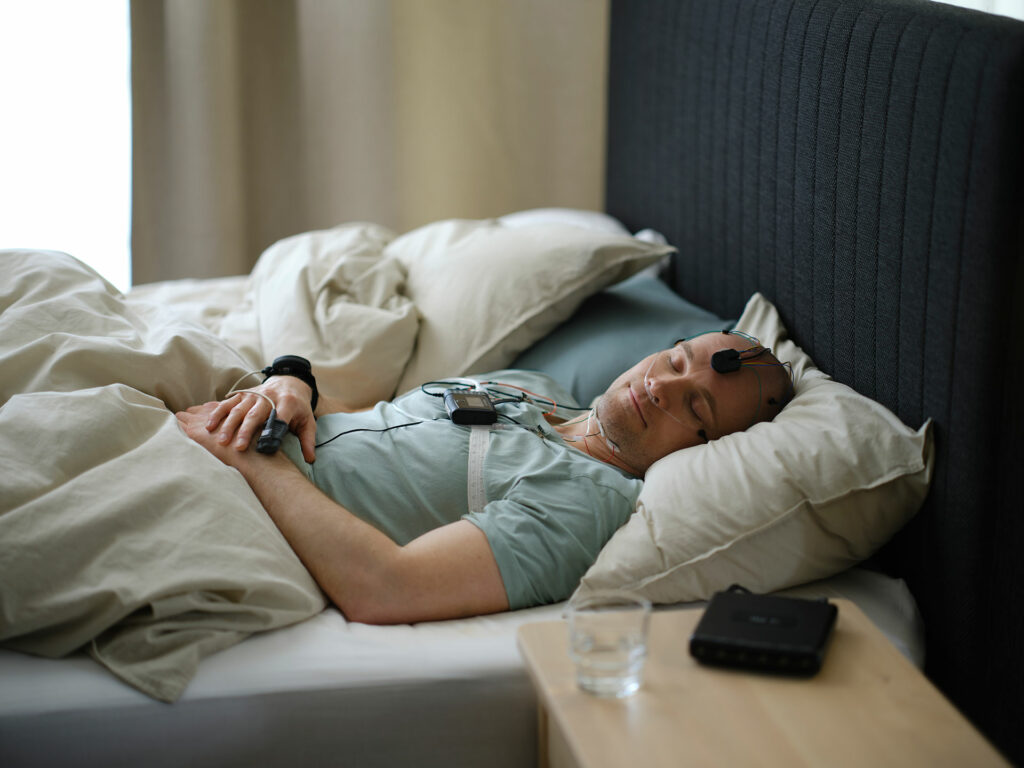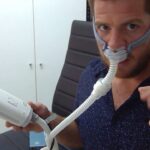Sleep Study Ipswich: Analysing Sleep Patterns in Queensland

Sleep is a fundamental aspect of our daily lives, yet it is often overlooked and undervalued. In recent years, sleep disorders have been on the rise, leading to a growing concern for public health. To shed light on this issue, a comprehensive sleep study was conducted in Ipswich, Queensland. The study aimed to analyze sleep patterns in the region and provide valuable insights into the importance of sleep and its impact on health.
Understanding the Importance of Sleep
Before delving into the details of the sleep study in Ipswich, it is essential to grasp the significance of sleep itself. Sleep is not merely a state of rest; it is a complex physiological process that allows our bodies to rejuvenate and restore. During sleep, our brain consolidates memories, repairs tissues, and regulates essential bodily functions. Without adequate sleep, our cognitive abilities, immune system, and overall well-being are compromised.
With the aim of gathering data on sleep study ipswich in Queensland, the sleep study in Ipswich followed a systematic methodology.
The Science Behind Sleep
Scientists have been intrigued by the science behind sleep for centuries. Through extensive research, they have discovered that sleep is regulated by two main processes: the sleep-wake homeostasis and the circadian rhythm. The sleep-wake homeostasis ensures that we have a sufficient need for sleep based on our awake time, while the circadian rhythm coordinates our sleep-wake cycles with the natural light-dark cycles of the day.
Sleep and Health: A Direct Connection
Studies have consistently shown a direct connection between sleep and overall health. Lack of sleep has been associated with a wide range of health problems, including cardiovascular diseases, obesity, diabetes, and mental health disorders. Furthermore, chronic sleep deprivation can impair cognitive function, decrease productivity, and increase the risk of accidents. Understanding this connection is crucial for developing effective strategies to improve sleep health.
One fascinating aspect of sleep is the role it plays in memory consolidation. During sleep, the brain processes and stores information gathered throughout the day, strengthening neural connections and enhancing our ability to recall and retain information. This process, known as memory consolidation, is vital for learning and academic performance. It is no wonder that students who prioritize sleep often perform better in exams and have improved cognitive abilities. Learn more about cognitive abilities visit at https://www.brookings.edu/wp-content/uploads/2016/06/05education_dickens.pdf.
Additionally, sleep is closely linked to our emotional well-being. A good night’s sleep can help regulate our emotions and improve our mood, while sleep deprivation can lead to irritability, mood swings, and even depression. This connection between sleep and emotions highlights the importance of prioritizing quality sleep to maintain optimal mental health.

The Methodology of Sleep Study Ipswich
The research team employed various techniques to collect accurate and reliable information on sleep habits, sleep quality, and potential sleep disorders prevalent in the region.
The Role of Sleep Studies in Health Research
Sleep studies play a vital role in health research, as they allow researchers to examine sleep patterns objectively. Through polysomnography, a diagnostic test used in sleep studies, researchers can monitor brain waves, breathing patterns, heart rate, and other physiological parameters during sleep. This data enables a comprehensive analysis of sleep patterns and helps identify any abnormalities or disorders that may exist. Learn more about heart rate, click here.
How Sleep Studies are Conducted
In the sleep study in Ipswich, participants were required to spend a night in a specially equipped sleep laboratory. During their stay, their sleep was monitored using advanced polysomnography equipment. Additionally, participants were required to provide detailed information about their sleep routines, lifestyle habits, and any sleep-related symptoms they may have experienced. This multi-faceted approach ensured that the sleep study captured a comprehensive picture of sleep patterns in the Ipswich region.
The sleep laboratory in Ipswich was designed to create a comfortable and relaxing environment for participants. The rooms were soundproofed to minimize external disturbances, and the bedding was carefully selected to provide optimal comfort. Soft lighting and soothing decor were used to promote a sense of tranquility, facilitating a more natural sleep experience for the participants. Learn more about Sleep Study Referral: Understanding the Process and Requirements visit at https://mhsblogs.com/sleep-study-referral-understanding-the-process-and-requirements/.
Furthermore, the research team in Ipswich included experienced sleep specialists who oversaw the entire study process. These experts were trained to analyze the data collected during the sleep study accurately. Their expertise allowed for the identification of subtle patterns in sleep behavior and the interpretation of complex sleep data, ensuring that the results of the study were thorough and insightful.
Analysing Sleep Patterns in Queensland
The analysis of sleep patterns in Queensland revealed several interesting findings. These findings not only provide valuable insights into the sleep habits of the region but also shed light on the prevalence of sleep disorders and the impact of lifestyle choices on sleep quality.
Understanding the nuances of sleep patterns is crucial for maintaining overall health and well-being. By delving into the sleep habits of Queensland residents, researchers were able to uncover valuable information that can help individuals make informed decisions about their sleep hygiene and seek appropriate interventions when needed.
Common Sleep Disorders in Queensland
One of the key findings from the sleep study in Ipswich was the high prevalence of sleep disorders in Queensland. Sleep apnea, insomnia, and restless leg syndrome were identified as the most common sleep disorders in the region. These disorders can significantly disrupt sleep continuity and quality, leading to daytime sleepiness and impaired daytime functioning.
It is essential for healthcare providers to be aware of the prevalence of these sleep disorders in Queensland to ensure timely diagnosis and management. By addressing these issues effectively, individuals can improve their overall quality of life and reduce the risk of associated health complications.
Impact of Lifestyle on Sleep Patterns
Another fascinating finding from the sleep study highlighted the impact of lifestyle on sleep patterns. It was observed that individuals who engaged in regular physical activity, maintained a healthy diet, and practiced effective stress management techniques experienced better sleep quality. On the other hand, those with sedentary lifestyles, poor dietary habits, and high stress levels had a higher prevalence of sleep disturbances.
These findings underscore the importance of adopting a healthy lifestyle to promote restful sleep. By incorporating physical activity, nutritious eating habits, and stress-reducing activities into daily routines, individuals can optimize their sleep patterns and enhance their overall well-being. Making conscious choices to prioritize sleep can have a profound impact on both physical and mental health, ultimately leading to a more fulfilling and energized life.

Findings from Sleep Study Ipswich
The findings from the sleep study in Ipswich provided invaluable insights into various aspects of sleep patterns, which have important implications for public health and well-being.
Understanding the nuances of sleep patterns is crucial for identifying potential areas of improvement in sleep hygiene and overall health. The study delved deep into the sleep habits of individuals in Ipswich, shedding light on both quantitative and qualitative aspects of their rest. By examining factors such as bedtime routines, sleep environment, and sleep disturbances, researchers were able to paint a comprehensive picture of the sleep landscape in the region.
Key Insights into Sleep Patterns
One significant insight gained from the study was the average sleep duration of individuals in the Ipswich region. It was found that the majority of participants were not meeting the recommended sleep duration, which contributes to the overall sleep debt in the population. Additionally, the study revealed that the sleep efficiency, a measure of the time spent asleep while in bed, was significantly lower than expected, indicating possible disturbances in sleep quality.
Furthermore, the study also explored the impact of lifestyle factors such as screen time before bed, caffeine consumption, and stress levels on sleep patterns. These additional layers of analysis provided a more holistic view of the factors influencing sleep quality and duration among Ipswich residents, offering valuable insights for future interventions and support programs.
Implications of the Study for Public Health
The implications of the sleep study in Ipswich for public health are far-reaching. The findings highlight the urgent need for sleep health education and awareness campaigns in Queensland. By promoting the importance of a good night’s sleep and providing evidence-based strategies to improve sleep habits, public health initiatives can positively influence the overall well-being and productivity of individuals in the region.
Moreover, the data from the study can serve as a foundation for policy development aimed at creating sleep-friendly environments in workplaces, schools, and communities. By prioritizing sleep as a fundamental pillar of health, policymakers can work towards implementing systemic changes that support healthy sleep habits and address the root causes of inadequate rest. Collaborative efforts between health authorities, educational institutions, and local businesses can help create a culture that values and prioritizes sleep, ultimately leading to a healthier and more vibrant population in Ipswich and beyond.
Improving Sleep Health in Queensland
Based on the findings from the sleep study, it is evident that efforts need to be made to improve sleep health in Queensland. Implementing effective strategies for better sleep hygiene and focusing on individual lifestyle modifications can have a significant impact on sleep quality and overall health.
Strategies for Better Sleep Hygiene
One of the key strategies for improving sleep hygiene is establishing a consistent sleep schedule. Going to bed and waking up at the same time each day helps regulate the body’s internal clock and promotes better sleep quality. This consistency allows the body to anticipate and prepare for sleep, leading to a more restful and rejuvenating experience.
In addition to a consistent sleep schedule, creating a relaxing bedtime routine can greatly enhance sleep quality. Engaging in calming activities such as reading a book, taking a warm bath, or practicing relaxation techniques can signal to the body that it is time to unwind and prepare for sleep. By incorporating these activities into a nightly routine, individuals can create a peaceful and conducive environment for restful sleep.
Another important aspect of sleep hygiene is ensuring a comfortable sleep environment. Investing in a supportive mattress and pillows, maintaining a cool and dark bedroom, and minimizing noise disturbances can all contribute to a more restorative sleep experience. By optimizing the sleep environment, individuals can create a sanctuary that promotes deep and uninterrupted sleep.
Avoiding caffeine, electronic devices, and stimulating activities before bedtime is also crucial for better sleep hygiene. Caffeine is a stimulant that can interfere with the body’s ability to fall asleep, while electronic devices emit blue light that can disrupt the production of melatonin, a hormone that regulates sleep. By limiting caffeine intake and avoiding electronic devices in the hours leading up to bedtime, individuals can create a conducive environment for a restful night’s sleep.
The Future of Sleep Health in Queensland
Looking ahead, the future of sleep health in Queensland holds great potential for advancements in research and interventions. Collaborative efforts between healthcare professionals, researchers, policymakers, and the community are essential for developing targeted and evidence-based initiatives to tackle the growing concern of sleep disorders.
By prioritizing sleep health, Queensland can pave the way for a healthier and well-rested population. This can be achieved through increased public awareness campaigns, educational programs in schools and workplaces, and the integration of sleep health into primary healthcare services. By addressing the unique challenges and needs of the Queensland population, tailored interventions can be developed to improve sleep health outcomes.
Furthermore, advancements in technology and telemedicine can play a significant role in the future of sleep health. Remote monitoring devices and telehealth consultations can provide individuals with access to sleep specialists and personalized treatment plans, regardless of their geographical location. This can help bridge the gap in sleep healthcare services and ensure that individuals receive the support they need to achieve optimal sleep health.
In conclusion, the sleep study in Ipswich has provided valuable insights into the sleep patterns of Queenslanders. The findings underscore the importance of sleep for overall health and highlight the need for improved sleep health education and awareness in the region. By implementing strategies for better sleep hygiene and prioritizing sleep health, Queensland can strive towards a well-rested and thriving population.
Sleep is a fundamental aspect of our daily lives, yet it is often overlooked and undervalued. In recent years, sleep disorders have been on the rise, leading to a growing concern for public health. To shed light on this issue, a comprehensive sleep study was conducted in Ipswich, Queensland. The study aimed to analyze sleep…
Recent Posts
 CPAP Masks Australia: A Comprehensive Guide to the Best Options AvailableContinuous Positive Airway Pressure (CPAP) therapy is a common and effective treatment for obstructive sleep apnea. One crucial component of this therapy is the CPAP mask, which delivers the airflow necessary to keep the airways open during sleep. In […]
CPAP Masks Australia: A Comprehensive Guide to the Best Options AvailableContinuous Positive Airway Pressure (CPAP) therapy is a common and effective treatment for obstructive sleep apnea. One crucial component of this therapy is the CPAP mask, which delivers the airflow necessary to keep the airways open during sleep. In […] CPAP Mask Online Shopping: How to Ensure You’re Choosing the Right Mask for YouChoosing the right CPAP mask for your needs is essential for effective sleep apnea treatment. With the convenience of online shopping, it’s possible to find various options without stepping out of your home. However, the multitude of choices available […]
CPAP Mask Online Shopping: How to Ensure You’re Choosing the Right Mask for YouChoosing the right CPAP mask for your needs is essential for effective sleep apnea treatment. With the convenience of online shopping, it’s possible to find various options without stepping out of your home. However, the multitude of choices available […] Discovering Your Sleep Type: The Benefits of a Sleep Type TestDo you often find yourself tossing and turning at night, struggling to fall asleep? Or maybe you drift off to dreamland effortlessly but still wake up feeling groggy and exhausted. If either of these scenarios sounds familiar, it’s possible that […]
Discovering Your Sleep Type: The Benefits of a Sleep Type TestDo you often find yourself tossing and turning at night, struggling to fall asleep? Or maybe you drift off to dreamland effortlessly but still wake up feeling groggy and exhausted. If either of these scenarios sounds familiar, it’s possible that […] Sleep Apnea Testing in Brisbane: Your Complete GuideSleep apnea is a common sleep disorder that affects many people in Brisbane and around the world. If left untreated, it can lead to serious health complications. In this complete guide, we will explore everything you need to know about sleep apnea […]
Sleep Apnea Testing in Brisbane: Your Complete GuideSleep apnea is a common sleep disorder that affects many people in Brisbane and around the world. If left untreated, it can lead to serious health complications. In this complete guide, we will explore everything you need to know about sleep apnea […] Sleep Study Ipswich: Analysing Sleep Patterns in QueenslandSleep is a fundamental aspect of our daily lives, yet it is often overlooked and undervalued. In recent years, sleep disorders have been on the rise, leading to a growing concern for public health. To shed light on this issue, a comprehensive sleep study […]
Sleep Study Ipswich: Analysing Sleep Patterns in QueenslandSleep is a fundamental aspect of our daily lives, yet it is often overlooked and undervalued. In recent years, sleep disorders have been on the rise, leading to a growing concern for public health. To shed light on this issue, a comprehensive sleep study […] Sleep Study Referral: Understanding the Process and RequirementsIn today’s fast-paced world, getting a good night’s sleep has become increasingly difficult for many individuals. From hectic work schedules to the constant distractions of technology, it’s no wonder that sleep disorders are on the […]
Sleep Study Referral: Understanding the Process and RequirementsIn today’s fast-paced world, getting a good night’s sleep has become increasingly difficult for many individuals. From hectic work schedules to the constant distractions of technology, it’s no wonder that sleep disorders are on the […] ResMed AirMini vs Traditional CPAP Machines: A Comparative AnalysisIn the world of sleep apnea treatment, Continuous Positive Airway Pressure (CPAP) therapy has proven to be highly effective in improving the quality of sleep for patients. CPAP machines work by providing a constant flow of air to keep the airways open […]
ResMed AirMini vs Traditional CPAP Machines: A Comparative AnalysisIn the world of sleep apnea treatment, Continuous Positive Airway Pressure (CPAP) therapy has proven to be highly effective in improving the quality of sleep for patients. CPAP machines work by providing a constant flow of air to keep the airways open […] Tips for Optimizing Your Experience with the ResMed AirMiniThe ResMed AirMini is a compact and convenient device that offers a host of features to enhance your sleep experience. Whether you are new to using this device or looking for ways to improve your current setup, this article will provide you with valuable […]
Tips for Optimizing Your Experience with the ResMed AirMiniThe ResMed AirMini is a compact and convenient device that offers a host of features to enhance your sleep experience. Whether you are new to using this device or looking for ways to improve your current setup, this article will provide you with valuable […] Eye Surgery, LASIK vs Contact Lenses: Which One Should You Choose?Eye surgery, LASIK, or laser vision correction. The procedure goes by many names, but regardless of what you call it, LASIK surgery is one of the most popular permanent options for those with poor vision. But while laser eye surgery works for various […]
Eye Surgery, LASIK vs Contact Lenses: Which One Should You Choose?Eye surgery, LASIK, or laser vision correction. The procedure goes by many names, but regardless of what you call it, LASIK surgery is one of the most popular permanent options for those with poor vision. But while laser eye surgery works for various […]![Is Laser Eye Surgery Worth the Cost? [Complete Guide]](https://mhsblogs.com/wp-content/uploads/2023/05/LASIK-SMILE-and-PRK2-150x150.jpg) Is Laser Eye Surgery Worth the Cost? [Complete Guide]You may be considering going for laser eye surgery soon. The entire laser eye surgery procedure is quick and painless and eliminates the need for glasses or contact lenses for a very long time. However, laser vision correction can also be expensive. […]
Is Laser Eye Surgery Worth the Cost? [Complete Guide]You may be considering going for laser eye surgery soon. The entire laser eye surgery procedure is quick and painless and eliminates the need for glasses or contact lenses for a very long time. However, laser vision correction can also be expensive. […]
